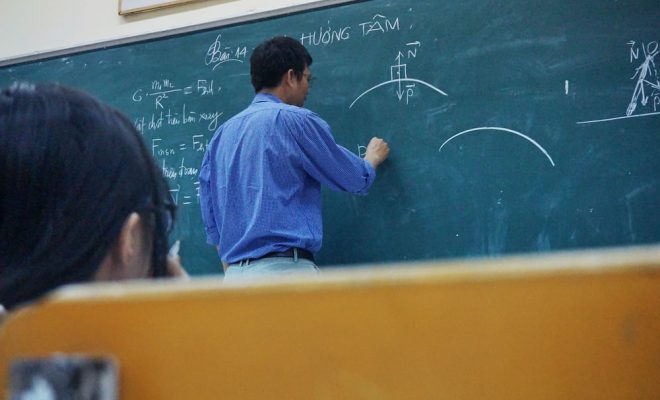2023 Best Online Masters of Computer Forensics

Click here to find out more about the ranking methodology that we used to compile this list.
Congratulations! If you represent a college or university that is included in this list, please collect your seal below.
Deciding which college to attend can be a daunting task. For many, it will be the most important decision that they make in their lives. To make an informed decision, you have to consider a lot of variables, such as cost of attendance, financial aid, student/teacher ratio, academics, student life, and more. These factors will either positively or negatively impact the quality of education that you receive.
Do you want to acquire a master’s degree in computer forensics, but don’t know what institution you should attend? Well, if you are as ambitious as I was in my late teens, then you want to attend a top school, instead of an average or mediocre one. Fortunately, we have already done the legwork for you. To help you find the right school for your interests and goals, we’ve compiled a list of 2022’s best master’s in computer forensics programs
What institution did we forget? Leave your thoughts in the comment section below.
One of the top sanctioned online colleges in the nation, Western Governors University has a reasonably priced online master of science (MS) in cybersecurity and information assurance. Rather than a tuition rate, WGU charges learners per term. This fee covers a maximum of 18 credit hours and, if learners need to reduce the college cost further, financial aid is available. Most graduate learners finish this degree program in one year. They take 10 classes, including:
- Cyberwarfare
- Ethical Hacking
- Secure Software Design
- Information Security and Assurance Capstone Project
- Disaster Recovery Planning, Prevention, and Response
Western Governors University prides itself on its expertise-based education methods and was named a Best Value School by University Research & Review. With the idea that no two learners are the same, online classes are customized to each individual’s needs. Much like the institution itself, these degrees are centered in the IT, teaching, health, and business fields.
SAU has degrees via five colleges, including Business, Education, Liberal and Performing Arts, Science and Engineering, and Graduate Studies. Learners can work on an online master of science (MS) in computer and information science with a cyber security and privacy option. Offered via SAU’s College of Science and Engineering, this degree program entails 30 hours and can be finished within two years. Required classes may consist of:
- Computer Networking
- Database Management Systems
- Information & Networking Security
- Vulnerability Analysis and Risk Assessment
- Traceable systems and Computer Forensics
Learners may select from one of three areas of focus, including information technology, data science, or cybersecurity and privacy. Many graduates of this degree program work in careers as security/privacy architects, forensic specialists, security/privacy compliance analysts, or related jobs.
American Public University System is a private, for-profit, regionally sanctioned institution dedicated to online learning. The school has an explicit focus on delivering available higher education to members of the US military (though they do not have a formal relationship with the military) and has high-quality, reasonably priced, sanctioned educational programs for nonconventional learners. The first half of American Public University’s degree program centers on the foundations of network security and cybercrime. The second half of the degree program centers on the political and social practices around cybercrime. The degree program aims to educate learner in several facets of cybersecurity:
- Analyze cyber threats
- Examine the legal side of issues
- Compare distinct policies
- Appraise the methodologies
- Categorize cybersecurity roles
Online classes at APU start monthly and run in either accelerated 8- or 16-week terms. Class sizes are small, and classes are asynchronous so that you can work on your schedule.
Sam Houston State University was established in 1879 and is the third-oldest institution in the state. It is home to over 20,000 learners and offers an array of degree programs. SHSU has an online master of science (MS) degree in digital forensics. This online degree program requires the completion of 30 to 36 credit hours. Required classes may consist of:
- Directed Management & Development Project
- Digital Forensics Investigation
- Network and Cyber Security
- File System Forensics
- Digital Security
This degree program is intended for people who have finished undergraduate studies in computer science or criminal justice.
The University of Maryland at University College has an fully online master of science (MS) in digital forensics and cyber investigation degree program. This 36-credit online degree program costs $694 per credit and must be finished within five years of starting. Required classes may consist of:
- Communicating, Problem Solving, and Leading in Cybersecurity
- Cyberspace and Cybersecurity Foundations
- Digital Forensics Technology and Practices
- Digital Forensic Response and Analysis
- Capstone in Cybersecurity
This degree program prepares learners for the following licensure exams: AccessData Certified Examiner, Certified Cyber Forensics Professional, EC-Council Certified Incident Handler, and EnCase Certified Examiner. UMUC has more than 100 scholarships, financial aid, and interest-free monthly payment plans for people who qualify.
This privately run institution has undergraduate and graduate degree programs in several areas. Known for its adaptable day, evening, and weekend classes, WilmU offers 15-week and 7-week course formats. Learners who are interested in computer forensics can work on an online master of science (MS) in cybersecurity. In this degree program, learners may select from one of two concentrations: cyber terrorism or SCADA cybersecurity. Required core classes may consist of:
- Protecting and Securing the OS
- Vulnerability Assessment and PT
- Cyber Threat Intelligence
- Network Security
- IDS and IPS
All learners must also finish a cybersecurity capstone and a research seminar. The graduate online tuition rate is $466 per-credit-hour. All active-duty military personnel, not including guard, reserves, spouses, and dependents, can take graduate classes for just $300 per-credit-hour.
The National Security Agency and the Department of Homeland Security have designated Wilmington University as a National Center of Academic Excellence in Information Assurance/Cybersecurity through 2022. Graduates will be prepared for positions such as computer systems analyst, cybersecurity intelligence analyst, digital forensic examiner, and ethical hacker.
Dakota State University is known for its technological focus; over 3,000 learners are enrolled in one of many undergraduate, masters, and doctoral programs at Dakota State. Many of the university’s most prominent degree programs are offered online. Dakota State has a master of science in information assurance, information systems, computer science and health informatics degree program. Learners in this program must finish 30 credit hours within the five-year time limit. They have the choice of taking classes part-time or full-time. Required classes may consist of:
- Network Security/Intrusion Detection
- Principles of Information Assurance
- Ethics and Information Technology
- Managing Security Risks
- Cryptography
All learners must finish a total of 10 classes and pass a holistic examination during their final semester to receive a degree. This program is designed for people with a background in computer science, information technology, or a related field.
Dakota State University offer quality degrees that are also reasonably priced; 76 percent of learners at DSU obtain financial aid. Scholarship are available for those who qualify.
UCF has more than 200 degree programs in 13 colleges, and invention and diversity are core values at UCF. UCF’s College of Engineering and Computer Science has an online MS in digital forensics.
What makes this degree program unusual is how many academic departments have collaborated to make the program holistic. Learners take classes in the following departments:
- Computer Science, Electrical, and Computer Engineering
- Forensic Science of Chemistry
- Criminal Justice
- Legal Studies
This fully online degree program requires learners to finish 10 classes; learners can finish this degree in two years or less. Learners may choose either a thesis or non-thesis degree program option.
The University of Central Florida is known for its reasonably priced degree programs; tuition for this program is just $288 per credit hour; out-of-state learners must pay a $350 non-resident fee. UCF offers scholarships to those who qualify; online learners have full online access to the UCF Library.
The University of Arizona is home to over 40,000 learners; the university has many online classes, giving their learners more flexibility to meet their degree prerequisites. The master of science (MS) in cybersecurity is one of the school’s best online programs and offers learners a state-of-the-art cyber virtual learning environment. This 33-unit degree program is intended for professionals who have at least three years of technology sector experience. Learners may select either of two paths: information systems or physical systems (engineering).
Degrees earned via UA Online are the same as those you would receive by taking conventional classes on campus.
Davenport University is home to nearly 7,500 learners—on campus and online. With more than 50 programs offered via its Colleges of Business, Technology, Health Professions, Arts & Sciences, and Urban Education, Davenport has plenty to offer, including a master of science (MS) in information assurance and cybersecurity. This 34-semester credit hour MS contains nine core classes, two upper-level electives, and a thesis. Required classes may consist of:
- Statistics for Business
- PERL/Python Scripting
- Introduction to Programming
- Information Security and Assurance
- Data Communications and Networks
Past graduates of this degree program have landed positions with prominent organizations, including National Security Agency, Boeing, CITI, Spectrum Health, and the Department of Energy.
This private, religious institution is home to just over 3,000 learners. Learners who are interested in computer forensics will find that the University of the Cumberlands has an outstanding online degree program. The master of science (MS) in information systems security is intended for people who already have a bachelor’s degree in a related field or who have worked in the sector for several years. Learners must finish a total of 31 credit hours. Required classes may consist of:
- Access Control
- Operations Security
- Security Architecture and Design
- Information Security and Risk Management
- Legal Regulations, Compliance, and Investigation
All learners must also finish an information security project to receive their degree. Most learners finish this degree program in 18 months or less; the cost is $315 per-credit-hour. Learners can receive institutional credit for learning experiences via work, travel, volunteering, participating in professional organizations, or self-study.
Originally established as a campus of UVA, George Mason University is home to nearly 34,000 learners. Perennially rated as one of the most outstanding institutions in the nation, George Mason offers numerous degree programs. The university has a master of science (MS) in applied information technology offered by the Volgenau School of Engineering. This program is 100 percent online. Learners may select a concentration in cybersecurity as well. Required classes may consist of:
- Cyber Security Fundamentals
- Secure Software Development
- Network and Systems Security
- Incident Handling and Penetration Testing
- Cyber Security: Emerging Threats and Countermeasures
Learners can choose whether they’d want to do a thesis. The cost of this degree program is $695 per-credit-hour for residents or $1,516 per-credit-hour for out-of-state learners. Graduates typically go on to work for federal government agencies or nonprofits in positions such as intelligence analysts, business systems analysts, project management analysts, or senior systems administrators.
Our Lady of the Lake University is religious, privately run institution, which offers an array of bachelor’s, master’s, and doctoral degrees. The university has a master of science (MS) in information systems and security entirely online. Learners can earn their degree in as little as one year. This degree program requires learners to complete 15 hours of classes in information systems and 15 hours in information assurance and security. Classes may consist of:
- Internet Security Architectures
- Information Systems Development
- Telecommunications and Networking
- Information Assurance Planning and Management
- Information Systems Hardware and Software Platforms
Graduates of this degree program will be prepared for positions such as chief information officer, chief technology officer, or chief security officer. The cost per credit hour is $889; financial aid and scholarships are available.
Established in 1965, this institution is home to over 21,000 learners; interested learners can earn a 48-credit master of science (MS) degree in cybersecurity policy entirely online. This program has a concentration in security management. Required classes may consist of:
- Government and the Cyber Sector
- Cyber Organizations and Structures
- Computer Systems Security Foundations
- Leadership and Ethical Decision-Making
- Emerging Initiatives in Cybersecurity Policy
The cost of this degree program is $585 per credit hour; scholarships and financial aid packages are available. Military Times magazine has rated CTU #1 Best for Vets in the category for online and non-conventional institutions. CTU is an outstanding choice for people seeking an advanced degree that is adaptable and reasonably priced. Classes start several times across the year, making it convenient for even the busiest professionals.
This mid-sized, private, Roman Catholic school is home to nearly 7,000 learners and offers over 100 degree programs. Presently, each of their five schools has adaptable online degree programs. Lewis has online MS degree in computer science with a cybersecurity concentration. Learners in this degree program will take four classes, plus one elective for a total of 15 credit hours. A sample of the online cybersecurity classes offered consist of:
- Digital Forensics
- Wireless Security
- Enterprise Network Security
- Encryption and Authentication
- Intrusion Detection, Response, and Recovery
Online classes are not self-paced, independent study classes; instead, learners are required to adhere to the class schedule, sustaining regular contact with the instructor, and participating in online class discussions. Graduates of this degree program will learn everything they need to know to design software and utilize the tools and networks necessary to combat cyber-attacks.







